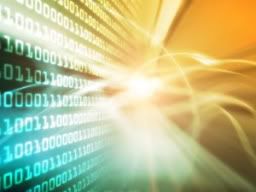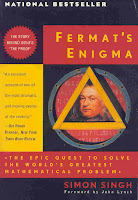AI & I : 5 Lessons learned from Artificial Intelligence

I began my graduate studies in computer science in 2003. After 3 years of part time study, I started groping for a thesis topic in Artificial Intelligence (AI). The experience was fun (and torturing- I had to change topics 3 times, but it was still fun… and torturing). I learned a couple of things along the way. I outline these things in this article.
1.Error feedback leads to perfection
Neural Networks (NN) is an AI technique that mimics how a brain learns through billions of neurons and their interactions with each other. One of the most popular training (or learning) method for Neural Networks rely on informing other (digital) neurons about the error levels of the current output of the network. This is called the Back Propagation Algorithm.
Lesson
Many times we dread facing our faults, whether we discover them ourselves or others inform us about them. But come to think of it, knowing about our faults is one of the best ways to improve. Improvement through feedback is actually practiced in many sectors of society: sports, business, academe, arts, etc. Dreading or neglecting error-feedback could cost us an opportunity to grow as a person.2.Don’t be afraid to try out something new
Genetic Algorithm (GA) is a technique that is derived from the theory of evolution- populations improve through natural selection, survival of the fittest and mutation over several generations. The fittest individuals are given more chances to produce offsprings for the next generation.
Mutation is an important component of this technique. Through mutation, a new range of individuals could be generated, which in turn could give better chances to solve the problem. Mutation is one of the tools used by GA to avoid settling in a relative (or local) optimum which is not yet the true (or global) optimum.
Lesson
Never be afraid of trying something new: it may just lead to a better solution, method or scheme. But remember to compare the performance of the new method with the existing one.3.Combine focus with exploration
Particle Swarm Optimization (PSO) is a technique inspired by the flocking of birds in search of food. There are two elements that drive the technique to find an optimal solution: first, an individual’s ability to find a good solution; and second, the influence of the other individuals' success in finding the best solution. Thus, there is a personal and a social aspect in this technique. PSO is a simple yet very powerful technique that has enjoyed popularity in recent years.
Lesson
While it is sound to continuously improve on an existing method, it would also be good to explore other methods which may offer better results. This is not just an endless itch for novelty because the results of the new methods always have to be compared with those of the existing one.4.Small incremental improvements could mean a big difference: Act now, improve, then iterate.
Neural Networks, Genetic Algorithms and Particle Swarm Optimization all rely on an iterative process to solve a problem. These iterations could run for hundreds or even thousands of times. Each iteration tries to improve the results of the previous one.
Lesson
One of my first lessons in doing thesis: don’t get stuck with reading literature and theorizing. My adviser would always say: “Read, experiment, analyze. You have to complete the cycle. Afterwards, you iterate.” Iterate. The word stuck to me. Don’t wait for the perfect opportunity before implementing something. Start with whatever resources you have now; analyze, then iterate. Iterate! You’ll love the word soon enough.5.A Hidden Intelligence works in nature.
AI has come up with effective techniques for solving real world problems by adapting things that can be found in nature: neurons in the human brain, evolution in organisms, and birds flocking to look for food.
Think about this: it took man thousands of years to mimic what birds have been doing since they were made. If you think that’s bad already, here’s something worse: it took man (again) thousands of years to figure out how ants, look for food and why they are successful in doing it (this is adapted in AI via the Ant Colony Optimization technique). Ants have been doing it since they were created.
These thoughts lead one to think that there is an Intelligence at work in nature.
I'd like to take evolution as a specific example. Evolution can’t take place without purpose, without design, without intelligence. In the Genetic Algorithm technique that was mentioned, a fitness rule has to be given by the GA designer for the program to work. Without a GA designer, the program will not know where the individuals should evolve to. I’m inclined to think it’s the same in nature. The evolution of one species to another has not yet been definitively established. However, even if it’s proven, it cannot discharge of a Designer which has placed the purpose, the objective towards which the organism has to evolve to.










Comments
Post a Comment